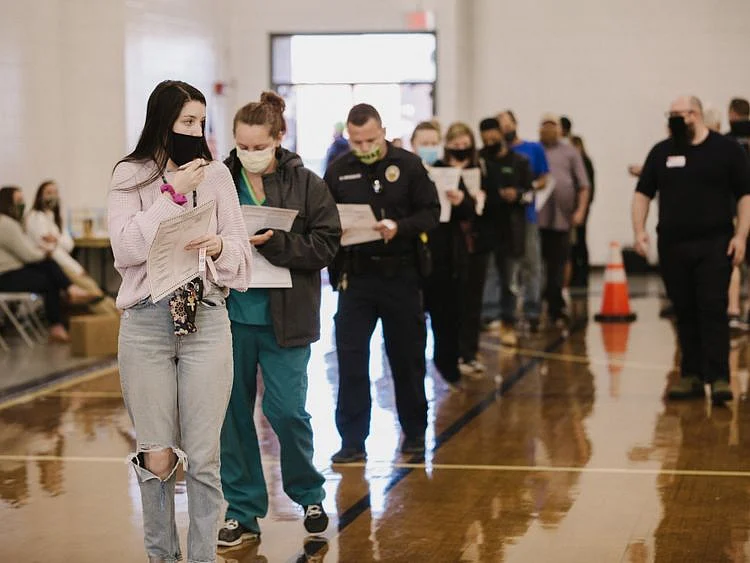Every four years Indians look at the messy election process in the United States and wonder why they can’t just learn from the Election Commission of India. The Election Commission of India is so efficient that election officials from around the world often visit Delhi to learn from it.
The messy election process for the President of the United States stems from a good place, which Indians don’t appreciate. That good place is American federalism.
Elections in India are conducted top-down: the ECI sets detailed policies and micromanages their implementation through the regular bureaucracy, which it just takes over, with Constitutional backing. In the United States the election process is not only run at the state level but at the county level. All of the US’ 3000 counties can have their different rules. What’s worse is that the main official organising these at the county level, the County Clerk, is an elected official, not a regular bureaucrat. Most people helping organise the election are volunteers. In India they are all government employees, especially teachers from government schools.
That’s why we hear stories about how some counties and states make voting difficult, how the queues could be so long that they deter some voters. The different rules in different states and counties about mail in ballots have made this pandemic era election particularly messy.
The United States needs to rethink this. A national election needs a more uniform electoral process. While India could do with a lot of decentralisation, it would be a nightmare if all of India’s districts had different rules about how to vote and how those votes would be counted.
Again, we in India wrongly believe the United States. It does. But the Federal Election Commission was created only in 1975, for a country which has had Presidential elections since 1788. The FEC’s main role is to regulate campaign finance, enforcing strict transparency. Other than that its role is limited to things like organising the Presidential debate.
America's Federal Election Commission
The FEC is such a weak body that in the election year 2020 its board does not even have the minimum number of members to hold a meeting since the Republican-controlled Senate refused to appoint members. India’s Election Commission is not without its own issues and allegations of political interference but the US’ FEC is a body so weak we don’t even hear about it during the elections.
The intent of creating the FEC to check campaign finance was also easily defeated by politicians who found a workaround: the PACs and Super PACs or Political Action Committees that work as supporting the candidates without donating much to the candidate’s campaign directly.
After all, if you visit a government run hospital in most parts of India you won’t think the Indian state is capable of efficiency. Such is the fabled efficiency of the ECI that prime minister Narendra Modi recently said Covid-19 distribution would take place the way elections are organised.
I once asked a senior official of the Election Commission of India the secret of its success. “If I were to give you an official answer,” he said, “I’d say that it’s because we have an autonomy guaranteed by the Constitution of India.” And the unofficial answer? “The Election Commission is the only place,” he said, “where bureaucrats get to rule over politicians. They love this opportunity and therefore do their best while it lasts.”
Credit goes to Pandit Nehru
Much credit goes to Jawaharlal Nehru, India’s first prime minister, for quickly setting up the Election Commission, quickly enacting the Representation of People Act, making people of this large country aware of voting process and holding an election. This was the moment when Nehru could have chosen to sabotage the election process and become a dictator like many postcolonial countries but he chose to make the poorest, unlettered, unaware citizens agents of democracy.
The US has had a different journey, rising from federal association. It is nevertheless time for the world’s oldest democracy to learn from the world’s largest democracy and have standardised rules for voting and vote counting in its national elections. This will make the American election far more credible, with far less accusations of voter fraud, vote denial, voter suppression and so on. Even in the 2018 midterm elections in the US, it took several days for the result to be out. By contrast, the Election Commission of India delivers the results of the world’s largest election in a day and there’s rarely ever a dispute about the result.
The US does not even care to hold the election on a holiday. The Election Commission usually organises voting on Sundays. The Election Commission’s greatest success has been in increasing turnout, shortening queues, making sure everyone can vote. No matter what the constraint, the ECI will solve it. They’re so good at it that we can even lend them to the US if they need it. We’re good at outsourcing, too.
Sign up for the Daily Briefing
Get the latest news and updates straight to your inbox
Network Links
GN StoreDownload our app
© Al Nisr Publishing LLC 2025. All rights reserved.
